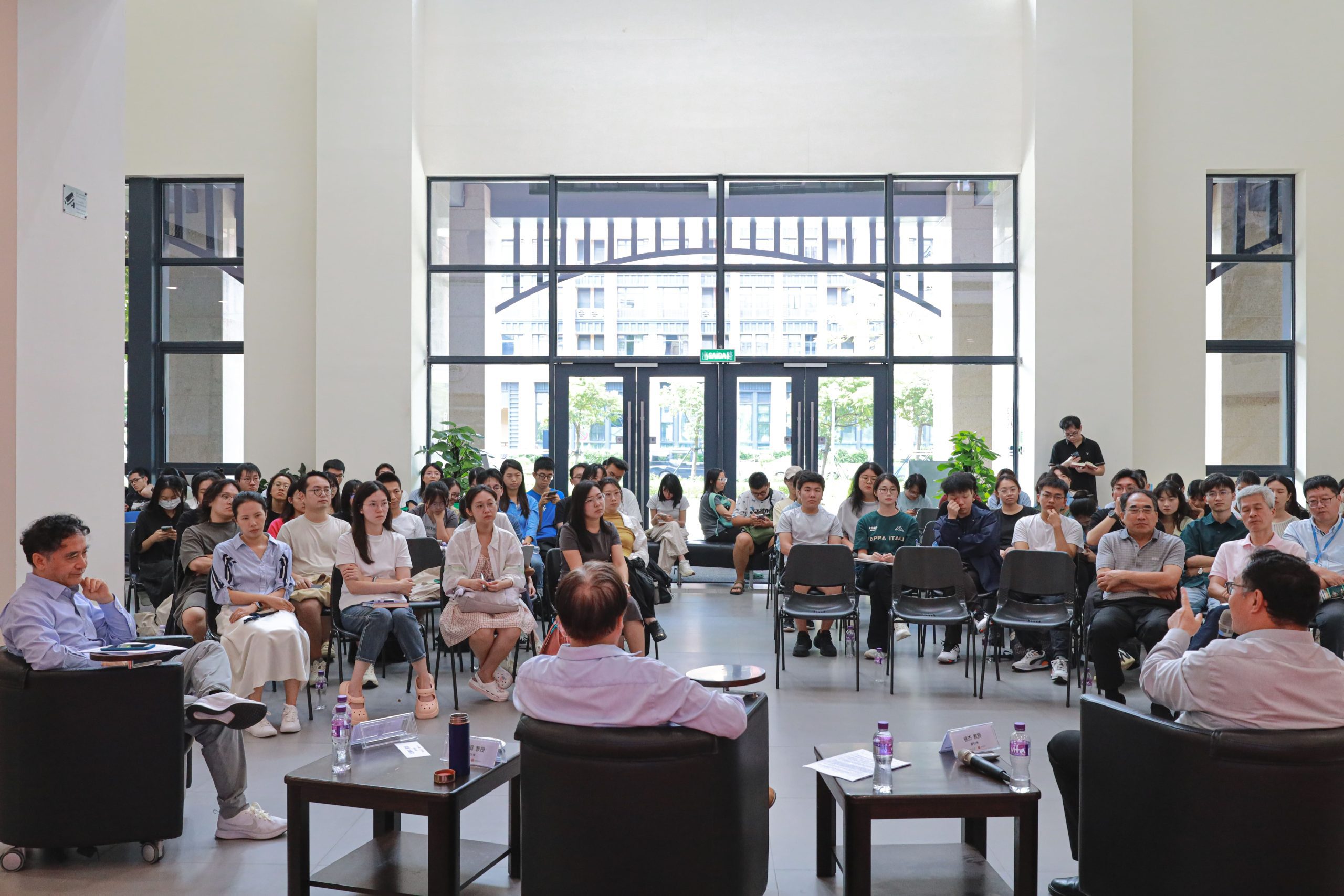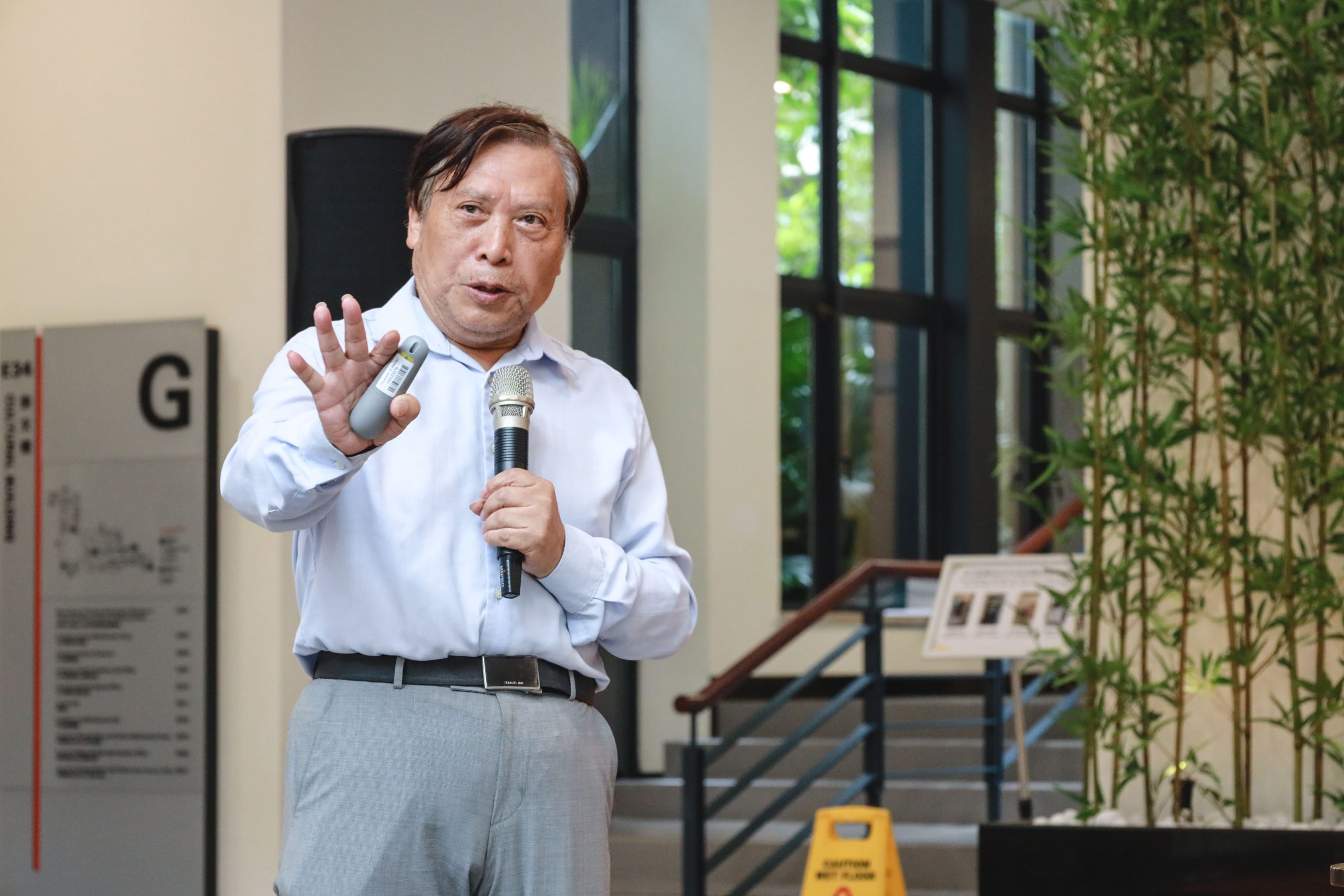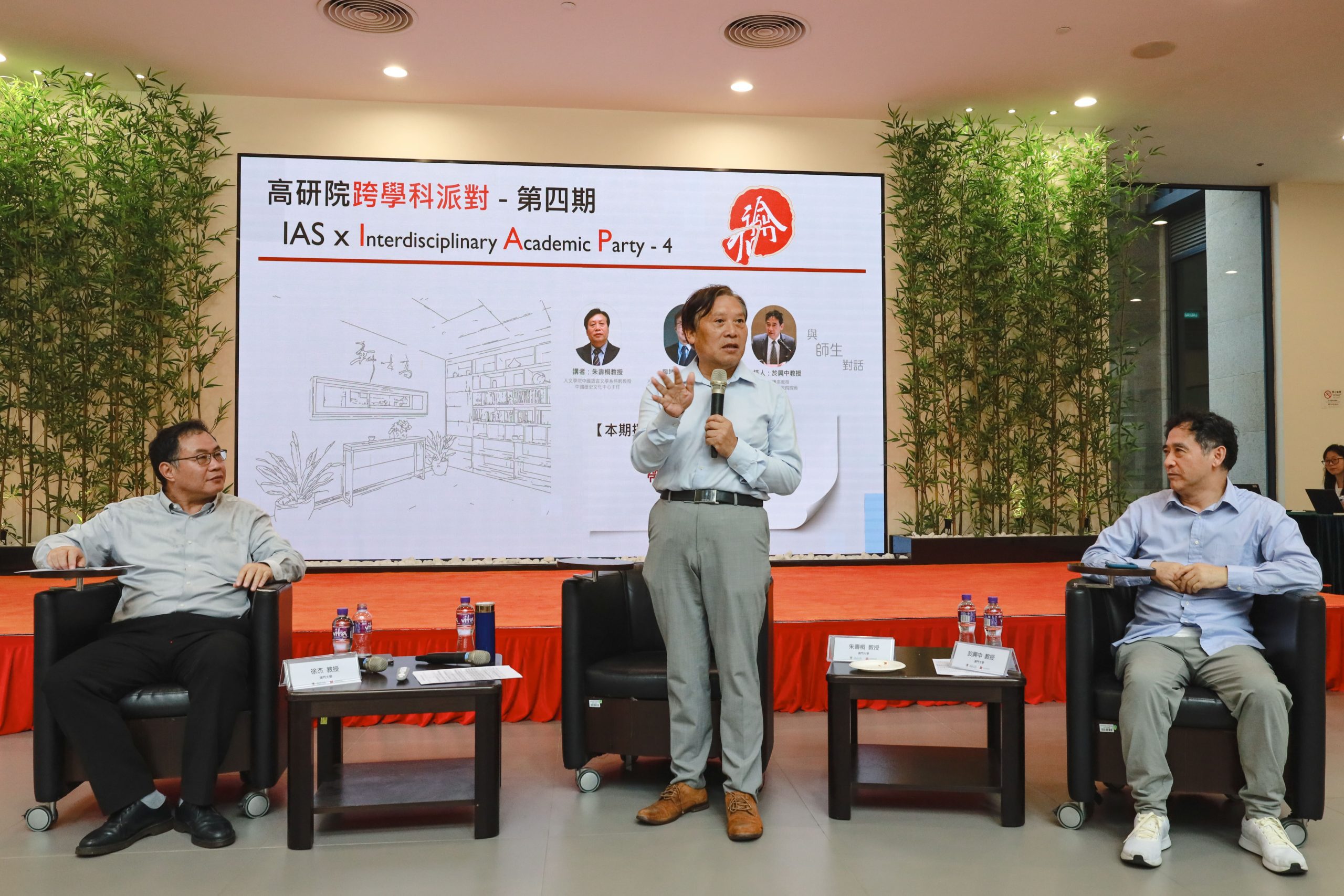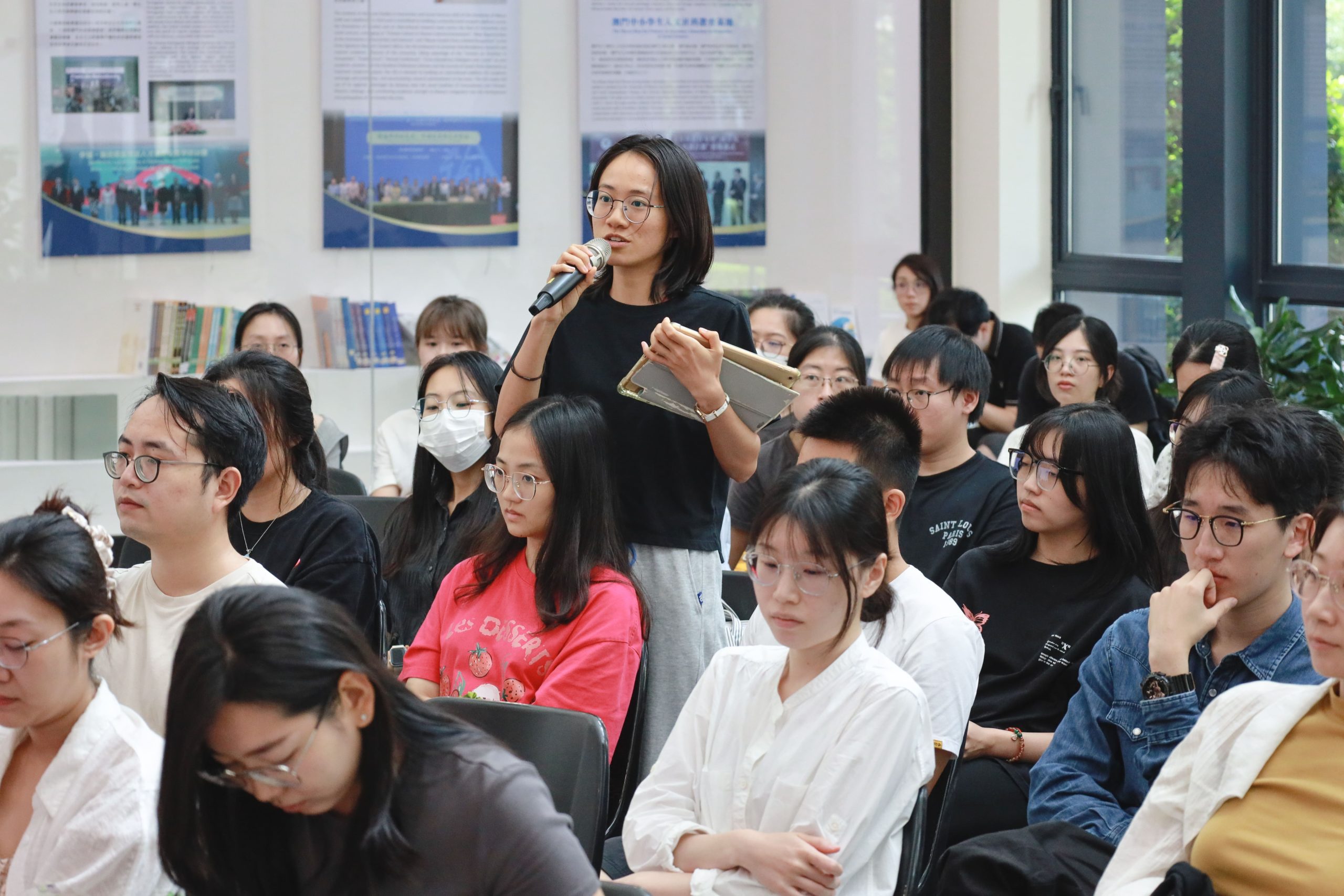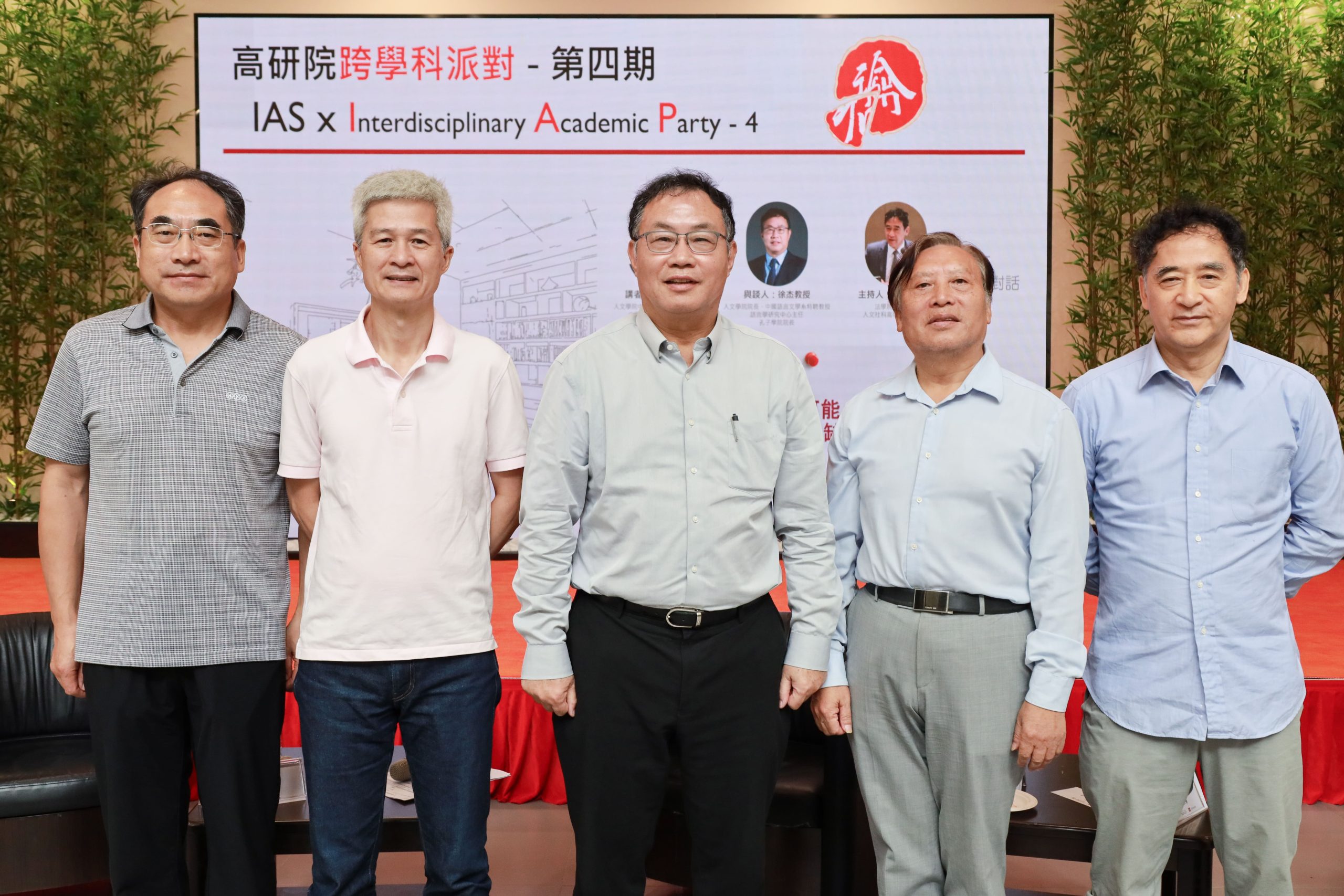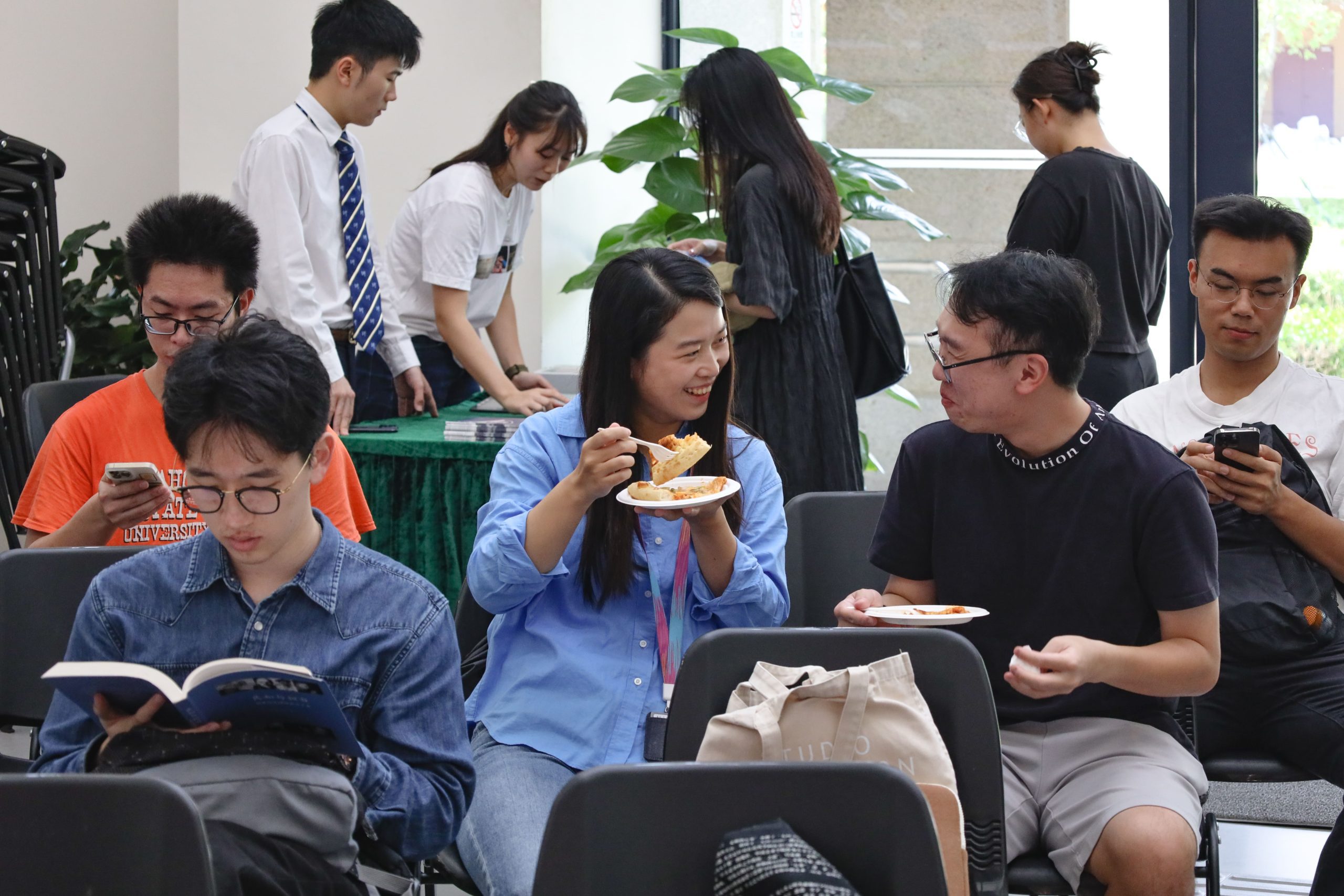【IAS】The IAS x Interdisciplinary Academic Party – 4 was successfully conducted
【高研院】高研院跨學科派對 – 第四期成功舉行

10月16日,由澳門大學人文社科高等研究院(高研院)主辦的「高研院跨學科派對–第四期」於崇文樓大堂成功舉辦。本次派對的主題為「學術發表中可能存在的文化缺憾」,邀請了人文學院中國語言文學系特聘教授兼中國歷史文化中心主任朱壽桐教授作為主講嘉賓;同時,人文學院院長、中國語言文學系特聘教授、語言學研究中心主任及孔子學院院長徐杰教授作為與談人,法學院講座教授兼高研院院長於興中教授擔任主持人。
活動伊始,朱壽桐教授以「人文流行病」為引子,指出現代學術界過度關注表面現象而忽略核心價值。他強調,學者應承擔起制止這一現象的責任,避免在學術發表中嘩眾取寵。隨後,他進一步強調在學術會議中,學者應謙遜自持並充分準備,以避免在人文與學術層面上的「人文瑕疵」,如自抬身價或不尊重聽眾。朱教授認為,只有保持謙謙君子的風度,才能真正促進學術與文化的健康發展。
隨後,教授們根據事先徵集的問題,就跨學科研究的核心、學術論文的撰寫以及不同學科的文化缺憾展開了深入討論。徐杰教授強調,跨學科研究應以問題為導向,而非為了跨學科而跨學科。學者應根據具體現象,自然引入多學科視角,實現協同創新。朱教授則指出,各學科在文化缺憾的理解上要求不同,但無論何種學科,學者都應保持「溫潤如玉」的態度,以促進健康的學術氛圍。同時,教授們一致認為論文應以讀者的理解為核心,學者應換位思考,以提升論文的可讀性。
在最後的討論環節,現場參與者積極提問,圍繞跨學科教育、學術嚴謹性等話題展開交流。有學生提出當學校推行通識博雅教育時,深造卻更注重專業延續性的矛盾,教授們回應道,跨學科教育應靈活應對,不必一刀切,應依據個人資源與研究需求選擇。現場師生交流熱烈,討論深入,展現了學術互動的良好氛圍。
「高研院跨學科派對」系列活動旨在推動校內師生學術互動,促進跨領域研究協作,增進學術創新與探索精神。本次活動吸引了將近100位來自不同學科和背景的師生踴躍參與,現場討論熱烈,學術氛圍濃厚,為未來的學術合作和跨領域交流奠定了良好的基礎。
On October 16, the fourth session of the “IAS X Interdisciplinary Academic Party,” organized by the Institute of Advanced Studies in Humanities and Social Sciences (IAS) at the University of Macau, was successfully held in the lobby of the Cultural Building. The theme of this session was ‘Cultural Deficiencies in Academic Publishing,’ featuring Prof. Shoutong Zhu, Distinguished Professor of the Department of Chinese Language and Literature at FAH and Director of the Centre for Chinese History and Culture, as the speaker. Prof. Jie Xu, Dean of FAH, Distinguished Professor of the Department of Chinese Language and Literature, and Director of the Centre for Linguistics and the Confucius Institute, served as the discussant. The event was moderated by Prof. Xingzhong Yu, Chair Professor of the Faculty of Law and Director of IAS.
Prof. Zhu first introduced the “Humanistic Epidemic” concept, pointing out that modern academia often focuses excessively on superficial phenomena, neglecting core values. He emphasized that scholars are responsible for counteracting this trend and avoiding sensationalism in academic publishing. He further stressed that scholars should remain humble and well-prepared in academic conferences to prevent “humanistic flaws” at both the human and academic levels, such as self-aggrandizement or disrespecting the audience. Prof. Zhu asserted that only by maintaining a gentlemanly demeanour can the healthy development of both academics and culture be truly promoted.
Following this, the professors engaged in a thorough discussion on the core of interdisciplinary research, the writing of academic papers, and cultural deficiencies across different disciplines, based on questions collected in advance. Prof. Xu highlighted that interdisciplinary research should be problem-oriented rather than interdisciplinary for its own sake. Scholars should naturally introduce multidisciplinary perspectives based on specific phenomena to achieve collaborative innovation. Prof. Zhu noted that while different disciplines have varying interpretations of cultural deficiencies, scholars, regardless of their field, should maintain a “gentle and modest” attitude to foster a healthy academic environment. The professors collectively agreed that papers should prioritize the reader’s comprehension, and scholars should empathize with their audience to enhance the readability of their work.
In the final Q&A session, participants actively asked questions, engaging in dialogues on topics such as interdisciplinary education and academic rigour. One student raised the issue of the contradiction between the promotion of liberal education at universities and the emphasis on specialization in further studies. The professors responded that interdisciplinary education should be adaptable and not rigid; it should be tailored to individual resources and research needs. The lively interaction between faculty and students created a vibrant and in-depth academic exchange, demonstrating a strong spirit of scholarly engagement.
The IAS Interdisciplinary Academic Party series aims to foster academic interactions among scholars and students, promote interdisciplinary collaboration, and encourage academic innovation and exploration. This session attracted nearly 100 participants from diverse academic backgrounds, creating a lively atmosphere that laid a solid foundation for future academic collaborations and cross-disciplinary exchanges.

